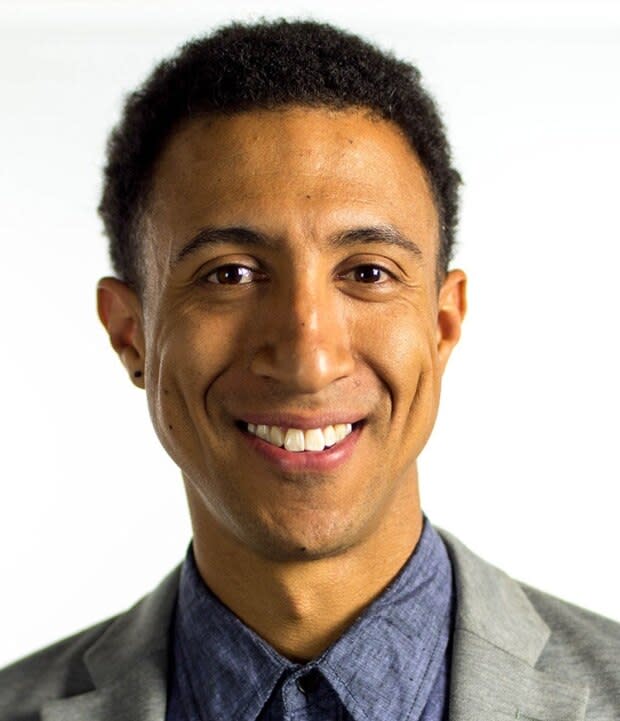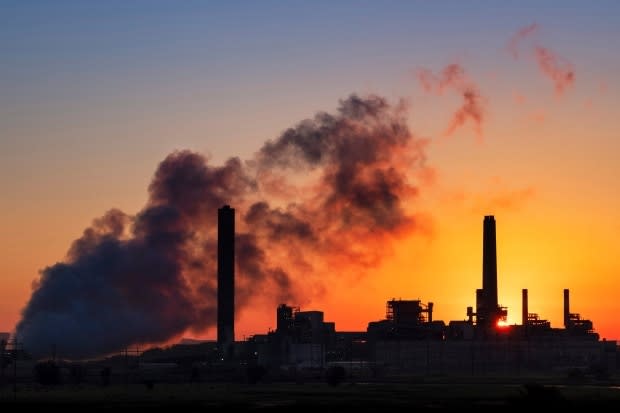OPINION | To hell with expert panels. Calgary needs an XPrize
This column is an opinion from Dave Robertson, a meeting facilitator and writer in Calgary.

After facilitating my fair share of think tanks and advisory groups, I have little faith in Alberta's Economic Recovery Council or Calgary's Economic Resiliency Task Force.
The moment someone utters the words "expert" or "blue ribbon," attention shifts from the problem to the people who are supposed to solve it. That's when a whole new set of problems start.
Smart people are just as prone to the Dunning-Kruger effect — that's the tendency to overestimate our capabilities — as anyone.
No, with Calgary's economy in tatters, we don't have time to wait for another committee of experts. What we need is a competition — let's say an XPrize — to create 20,000 jobs in two years?
If you're unfamiliar with the concept, an XPrize is a public competition organized by the XPrize Foundation to "bring about radical breakthroughs for the benefit of humanity."
First private suborbital spaceship? Done. A car capable of 100 miles to the gallon? Check. COVID-19? They've got people working on it. Anyone can enter and, if they meet the goal, they win a big cash prize.
There is already one XPrize with a Calgary connection running now.
The carbon challenge
The XPrize Foundation is running the $20-million NRG COSIA Carbon XPrize. It's a challenge to develop a technology that extracts carbon dioxide from emissions and converts it into high-value products, like food, plastics and concrete.
Calgary-based Canadian Oil Sands Innovation Alliance (COSIA) is a sponsor and Calgary is home to one of the competition's test sites.
Prize leader Marcius Extavour is a frequent visitor to Calgary. He's also a Canadian and well-acquainted with our economic challenges, so I asked him to speculate on whether an XPrize could fix our lack of jobs.
In his opinion, the XPrize is excellent for generating innovation.

"It gets you out of, respectfully, the blue-ribbon panel approach, where you call the people you already know, because they've risen to the top of their field and notoriety," Extavour says.
"The usual suspects already know the usual suspect-type ideas."
The Carbon XPrize has the attention of international experts, entrepreneurs and researchers and among the 10 finalists, there are teams from India, China, the United Kingdom and the United States. Three teams are from Canada.
But Extavour says that Calgarians can't sit back and expect a miracle, we have to show we're open to transformative change.
And that might be our biggest problem.
While Calgary still has many things going for it, we're not exactly winning "A"s for attitude. With Alberta's oil and gas industry under siege, Calgarians are defensive and angry about what we see as a lack of respect from outsiders.
We also have a reputation for NIH — "Not Invented Here." That's corporate jargon for holding a negative attitude to ideas, opinions and knowledge that come from elsewhere. Too many Calgary business and community leaders are blindly loyal to what we've created here and highly suspicious of fresh ideas from the outside.
Extavour is sympathetic, but says, "I think the defensive attitude, which I'm not saying is inappropriate … can get in the way of new ideas, because it means it's harder to invite outsiders into that conversation."
The sponsors of the Carbon XPrize are showing a new outlook.
COSIA is a Calgary-based consortium of oilsands producers working together to improve the industry's environmental record. By sponsoring the Carbon XPrize, these companies are supporting what Extavour describes as "a climate change innovation play."
The Carbon XPrize has their support because it reframes the carbon capture challenge as a business opportunity. By turning CO₂ emissions into useful products, they will enjoy compelling economic incentives for capturing and converting greenhouse gas emissions.

To skeptics like me, it might sound like an elaborate exercise in greenwashing. But then I found this information from the Pembina Institute. According to the environmental think tank, the global market for products made from CO₂ could generate $800 billion US in value annually. That's as much as the global oil industry today.
Pembina also says most climate models show that we have to master carbon capture, utilization and storage (CCUS) or face a two-degree Celsius increase in atmospheric temperature that will cause catastrophic climate change.
And there's another reason to commercialize winning discoveries from the Carbon XPrize.
As some in the oil and gas industry like to remind us, industrialized society won't end its consumption of fossil fuels for many decades. If that's true, demand for carbon recycling will last just as long, and Calgarians who find work in this new sector will escape our notorious boom-bust cycles.
A tall order
An XPrize can create important technical innovations, but can it create 20,000 jobs in two years? Extavour says it's a tall order.
He believes an economic challenge like this could take anywhere from 10 to 25 years to achieve.
So here's where my idea comes in.
When it comes time to commercialize CCUS technologies, I think we'll need a $100-million XPrize to prepare Calgarians for jobs in the CCUS sector. It might sound ludicrous until you consider Alberta's Site Rehabilitation Program. With a budget of $1 billion provided by the federal government, it will create 5,300 jobs. That's over $188,000 for each job.
For it to work, we still need to examine our attitudes. Business leaders and politicians need to stop obsessing about the good old days of oil and gas. Skeptics like me have to accept that the resource sector has an important role in creating a better future.
We also need to accept help from talented people from outside Calgary.
Says Extavour, "If the right group of leaders could get together and say, 'listen, we are going to be vulnerable a bit … because we want to bring in new ideas' — I think that might be a way forward in Calgary."
This column is an opinion. For more information about our commentary section, please read this editor's blog and our FAQ.

